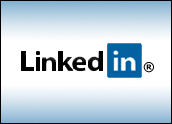
Despite Groupon’s recent high-profile missteps, enthusiasm over the daily deal site’s anticipated initial public offering doesn’t seem to be dissipating.
That’s unfortunate, at least in my opinion — and my thoughts have nothing to do with Groupon running what were widely perceived as culturally insensitive Super Bowl ads or the bad deal it offered on Valentine’s Day flowers.
The bottom line is that Groupon, as a business, is a poor investment.
For months, we’ve been hearing that Groupon is poised to launch an IPO sometime this year. Recent reports indicate it could happen as early as this spring.
That would be would be a wise move on the company’s part, if you believe the Wall Street investment bankers who peg Groupon’s value at US$15 billion. Among social media companies, only Facebook, which has an estimated value of $50 billion, is believed to be worth more.
A Bad Business Model
If Groupon proceeds with an IPO, the well-connected investors who are able to purchase the true initial shares will probably turn a nice profit as the stock skyrockets in the short term. The regular people who buy in later won’t be as lucky. Many of them are likely to end up feeling as if they bought into a Ponzi scheme.
My lack of enthusiasm over Groupon’s prospects is based on two simple facts:
- There is nothing unique about Groupon’s business model; and
- Groupon is doing almost nothing to enhance the model.
Groupon’s business is built around a simple premise: Offer one discount a day on a product or service that users can purchase in their home towns. The discounts are often substantial — sometimes as much a 90 percent.
Everybody loves a bargain, so it makes sense that the Groupon site has become popular. The company reportedly generates $1 billion in annual revenue by offering deals to 50 million subscribers in 35 countries.
Too Much Competition
There are many problems with Groupon’s business model, however, starting with the fact that it’s very easy to copy. That became evident when Groupon started its international expansion and ran into 147 competitors in Japan alone.
There also are numerous websites now peddling software programs that purportedly will allow just about anyone to create a Groupon clone. One of these sites will let you download a basic version of its software for free; the “premium” version is $95.
It’s farfetched to think anyone could create a true competitor to Groupon with a $95 piece of software, but more formidable entities — including Google and Facebook — certainly could build services that would make Groupon nervous.
Facebook Deals is already operating in the U.S. and is set to launch in Europe and Canada, and Google Offers is expected to debut any day now.
Groupon thought it had effectively conquered the competition in Japan by shelling out $10 million to acquire the company that had amassed the largest share of that country’s daily deal market.
Poor Order Fulfillment
Then, a problem that has plagued Groupon in the U.S. cropped up in Japan. Its new acquisition started selling coupons to more customers than the local businesses offering the deals could handle. This became major news in Japan when a restaurant on the outskirts of Tokyo ran out of the caviar it was supposed to be serving as part of a Groupon New Year’s dinner package and began serving what customers described as limp fish instead.
The Valentine’s Day fiasco — in which people who purchased coupons for $20 off flowers at a special FTD-Groupon website later learned they could have gotten a better deal by going to the regular FTD site without a coupon — proves that Groupon is not paying close enough attention to ensuring its customer actually get the discount they’re expecting.
Beyond the fulfillment issues, Groupon has weaknesses that companies like Google and Facebook should find easy to exploit. Chief among these is the lack of personalization.
No Personalized Deals
I’ve subscribed to Groupon for several months now, and I’ve yet to receive an offer I couldn’t refuse. Most of the offers that hit my in-box are for discounts at day spas or hair salons. Clearly, they’re targeting a different gender, and at no point has Groupon asked me for any information that would help it prepare offers that might be more to my liking.
Both Google and Facebook have loads of personal data about their users — and I’m certain they will use it to tailor offers to specific users on their deal sites.
Even Foursquare, which I have criticized as being less than a viable business in the past, is working on personalization. It apparently is close to launching a feature that gives users recommendations on new places to visit based on the places they have previously checked in.
A Missed Opportunity
Meanwhile, Groupon is offering refunds to customers who bought the FTD Valentine’s Day coupons and still apologizing to the people of Tibet for giving the impression that it was exploiting their problems for financial gain with its Super Bowl ad.
One big ironic twist to this story is that it was only after Groupon turned down its $6 billion purchase offer that Google started working on Google Offers.
Ultimately, Groupon’s management team may find itself wishing it had taken that deal when it had the chance.






















































Groupon made a $6 billion mistake when they turned down Google’s offer. (And Google would have made a $6 billion mistake had Groupon accepted.)
Groupon has a business model that can be, has, and will continue to be imitated. As the market saturates, Groupon’s revenues will decrease drastically. What’s fascinating is that a small, local imitator can effectively compete with Groupon (albeit at a lower margin, but then again, the small firm likely has lower overhead).
Anthony
http://e-marketingforsensiblefolk.blogspot.com/2010/11/blog-post_30.html
Groupon has lead the trend of internet social website. And groupon Clone is really hot now influenced by the success of Groupon. My friend recently built a Groupon clone website and has achieved a great success. He got the technique support from the company
Groupon is already old news. Another aspect of marketplace competition that was not mentioned in this article is that a number of daily newspapers — including some with a national footprint –already offer "daily deals" to their subscribers. Newspapers are generally pretty lame at marketing and e-commerce but they, like other local media, do already have established customer bases of subscribers and advertisers. If they so chose, they would be in a better position than anyone else to leverage those databases and enhance the offers via personalization or even fulfillment.
Brilliant article, Mr. Hill Very intelligent and perceptive. Andrew Mason seems to be more like a Bernie Madoff than a Horatio Alger! Is he pulling a shell game or a ponzi scheme? Both?
Interesting…………….scandal ahead, maybe???
Groupon’s math skills and financial claims are sorely lacking at best and are deceptive at worst
If Groupon has "saved" consumers 1 billion dollars as it claims, then Groupons share of 50 to 90 percent off of that would mean the company has received 100 million to 500 million profit at best in 2 years of operation before expenses. That’s million, not billion. How can a company be worth billions if it’s profit margin is so small, has almost nothing that is tangible, and has so much competition? Is that why Groupon received state aid from Illinois a short time ago? Did Groupon refuse Googles offer because it could not sell to them instead of did not want to sell to them? Maybe Groupon did not want it revealed how little they make and how few customers they really have??? Is Groupon deceiving the public, media, and it’s investors hoping to cash in and run down the line??? A lot of hard questions need to be asked of Groupon concerning their business and financial practices. They will have a large number of legal problems in the future, I predict. Investors, beware!!! Consumers, too!
What is that sound that I hear…..? Oh, it must be Google and they are rolling on the floor laughing their …… off! I mean seriously, how badly can one company screw up in a three month period of time?
Groupon – No, Google I don’t want your $6 billion, we are better than that.
Google – OK, we will just do our own thing…Google Offers anyone?
Groupon – We are gonna run Super Bowl ads and generate some serious excitement and increase sales!
America – you offend us!
LivingSocial.com – Ha ha ha ha, idiots!
Google – dumba…. they should have taken the money
freefu.com – Ha ha ha…..
Groupon – Hey everyone, we have a great FTD flower offer (shhh, just don’t tell anyone that they can go directly to FTD and get a better deal)!
Everyone – WTF, Groupon you suck!
Google – ha ha ha ha ha
freefu.com – idiots, ha ha ha
Livingsocial.com – who’s running the show over there, ha ha ha
The rest of America – We will never use Groupon now.
Ha ha ha………
$6 billion? Really? And they said NO?
Idiots!